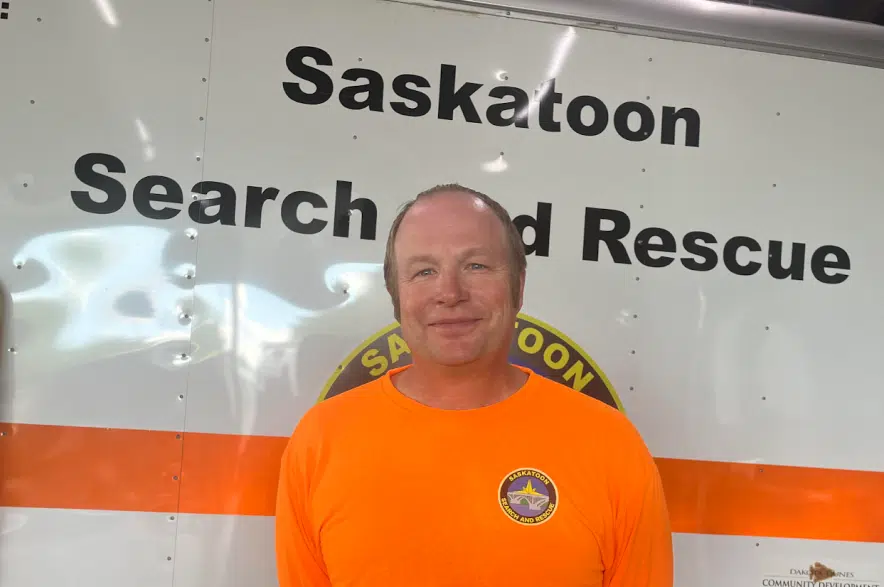Saskatoon’s search and rescue team has developed two new programs that it hopes are going to save more lives.
Search and rescue is a team of volunteers that works closely with the Saskatoon Police Service when someone in the city or nearby areas goes missing. Now, two new programs are changing the way the team operates.
The first new training program is the Wilderness First Responders.
“It’s the highest level of first-aid training that you can take through the Red Cross,” said search manager and team lead Vance Lester. “It’s on-the-job training for people in real environments.”
Lester said the course is 80 hours long, but training goes far beyond that. Although there are classroom components, most of the course was done outside in all kinds of temperatures and possible rescue scenarios.
“Imagine doing CPR training at -40 C,” said Lester, “because those are the kinds of environments that we operate in.”
The team doesn’t have the same training and expertise that actual paramedics do, Lester said, but the Wilderness First Responders are able to track people down on foot and still provide quality medical care.
The team members have medical equipment in their backpacks and are highly trained in first aid. Lester said the team can provide care without having an ambulance.
The second development was the addition of a Rapid Response Team, which works to find people in emergency situations as rapidly as possible.
The team of the 16 most-experienced searchers will be sent out during the early stages of a search to do initial work in finding someone. During this time, the rest of the search and rescue team will be back at its hall conducting a plan for a longer investigation if needed.
“The Rapid Response Team members will head directly to the search area and start searching those high-probability areas,” said Lester.
“By having a Rapid Response Team, we might save 45 minutes or an hour from that process, which can be the difference between life and death for some of our subjects.”
Lester described high-probability areas as pools, the river, busy roads and highways. He said a Rapid Response Team is essential, especially so when dealing with people missing who have dementia or autism.
This team is the only one of its kind in the province. Lester said a team that works at this speed can make all the difference.
“We’ve had elderly people with dementia that left their apartment and were found in a snowbank, extremely hypothermic,” said Lester. “If we had been a half-hour later, they might not have made it.”
The search and rescue team also has got 11 new radios. Lester said radios are the team’s main form of communication, and more radios are essential, especially during a rapid search.
“The more we can communicate with each other, the more co-ordinated our response can be,” said Lester.
The new programs were developed with grants from the Dakota Dunes Community Development Corporation, SaskTel TelCare and other companies. The funding for the first responders program was $10,000 and the funding for additional radios was $13,000.











